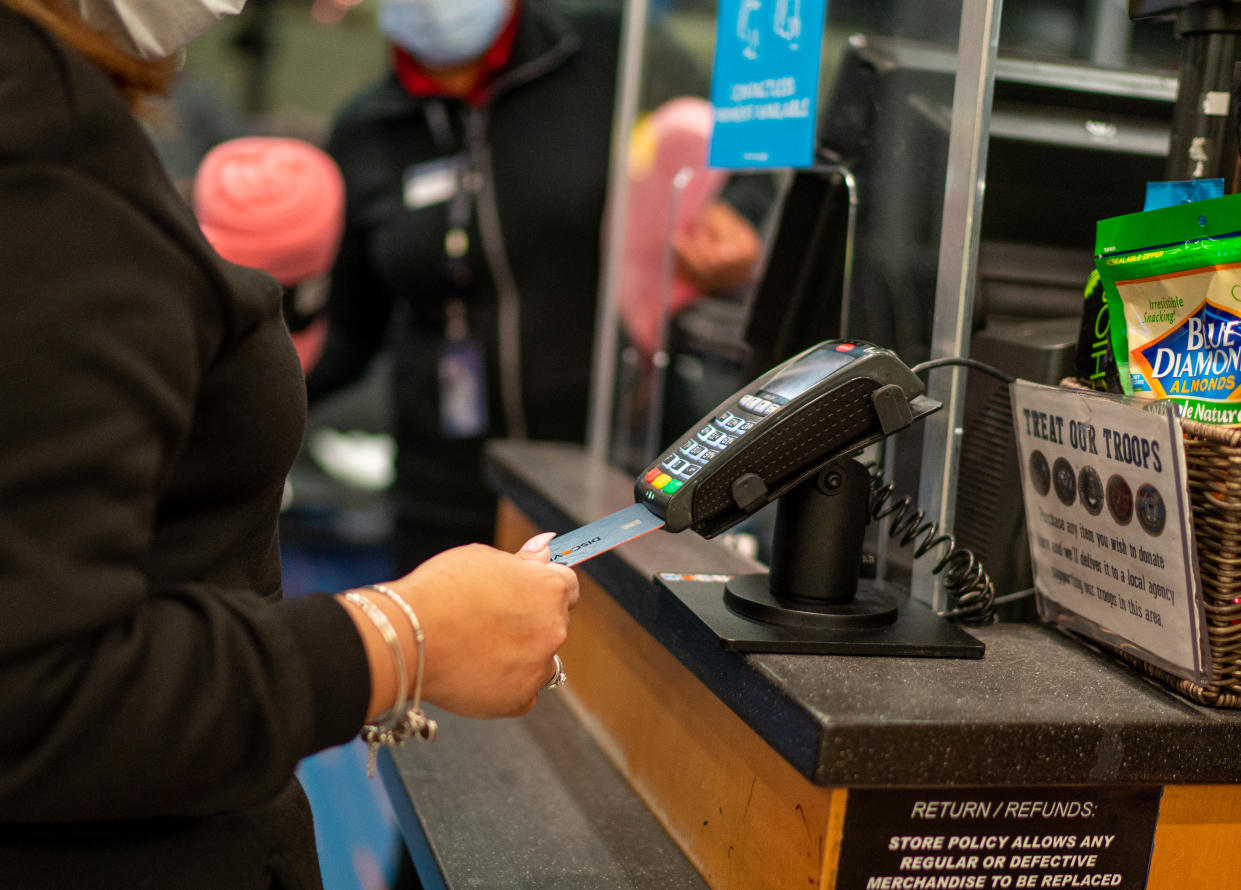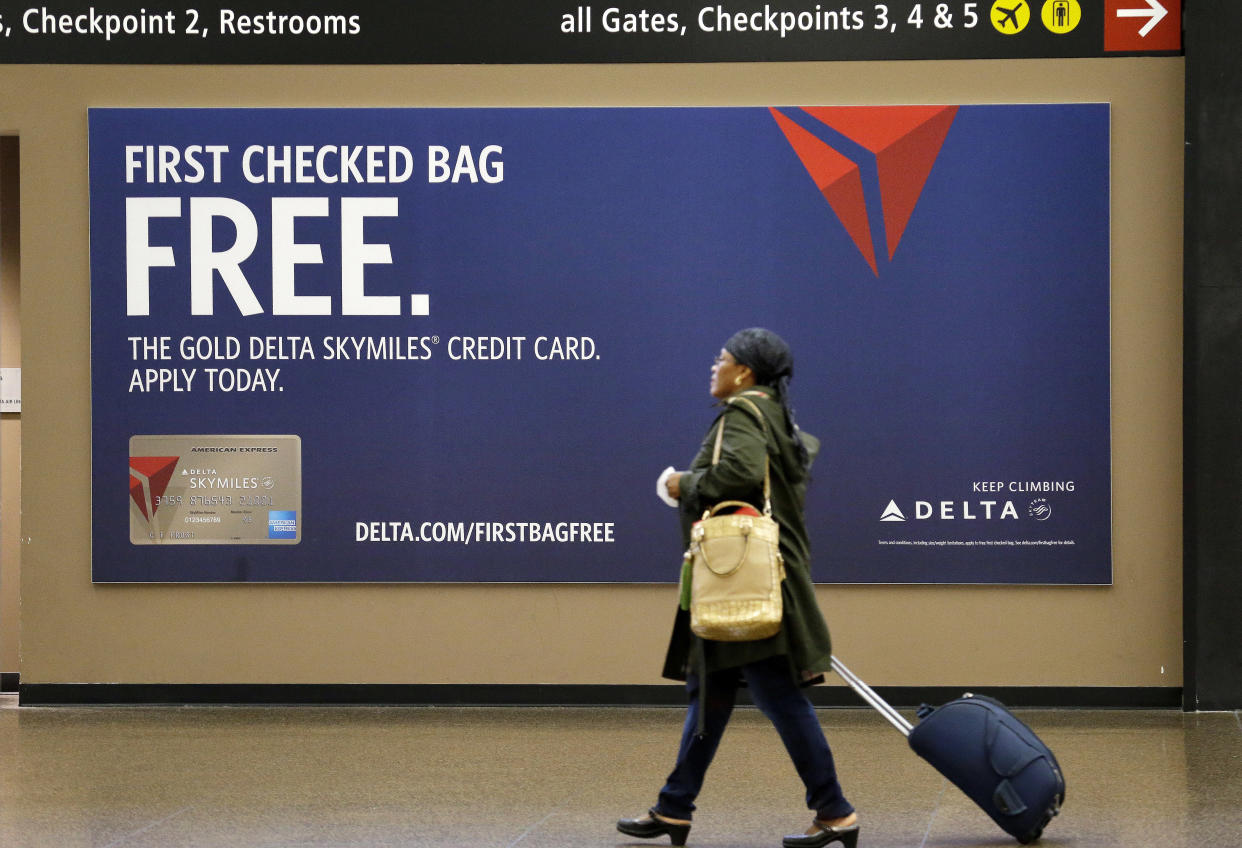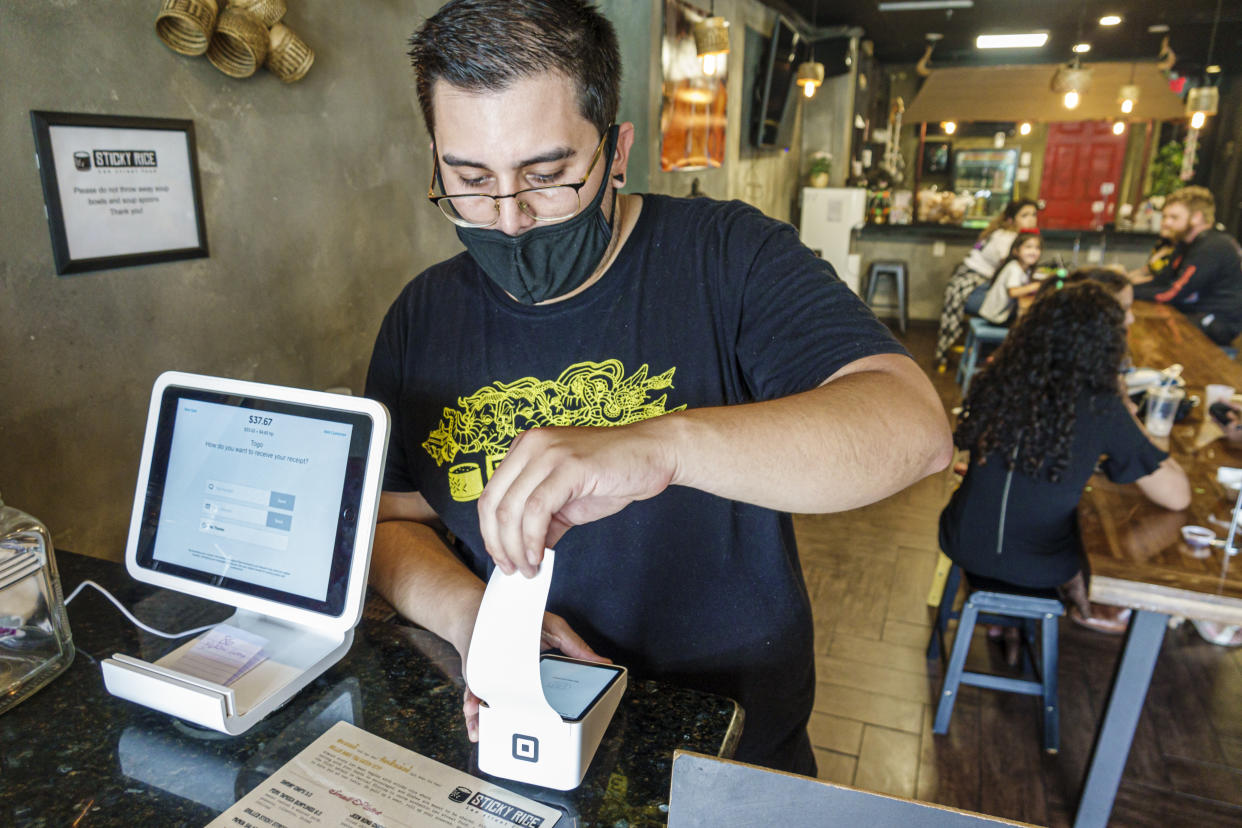Credit card rewards exploit America’s less financially savvy, study finds
There’s a deep divide between the folks who benefit from credit card rewards and those who don’t, a discrepancy that banks appear to profit from, according to a new working paper.
Financially savvy individuals with higher credit scores were more likely to profit from credit card rewards at the expense of naive consumers with lower scores, who had a tendency to overspend to gain more rewards, creating an imbalance.
Read more: What is compound interest, and how is it calculated?
As a result, the researchers of the staff working paper from the Federal Reserve’s Finance and Economics Discussion Series estimated that $15.1 billion was transferred annually from "less to more educated, poorer to richer, and high to low minority areas," widening existing disparities.
For credit card holders, spending wisely when it comes to rewards programs can make a difference to your financial well-being – especially if interest rates continue to rise. If you're not careful, banks can easily profit off your lack of knowledge, the researchers noted.
"Banks ... can design financial products to exploit these mistakes, combining salient benefits with shrouded payments," the researchers said. "Naive consumers might underestimate these payments and incur costs from usage. Sophisticated consumers, in contrast, might rake in the benefits while avoiding the payments and thus profit from usage."
"Such products can therefore generate an implicit redistribution from naive to sophisticated consumers and thereby contribute to inequality," they added.

Cardholders with higher credit scores were better off
Using FICO credit scores as a proxy for financial savviness, the researchers compared the outcomes of reward cards to those of traditional credit cards with no rewards.
The analysis found that super-prime cardholders (FICO score above 780) earned on average $9.5 in rewards and paid $7.1 less in interest on rewards cards than on classic cards. By contrast, subprime consumers (FICO scores below 660) earned only $1.8 in rewards and paid $6.4 more in interest.
"Credit card rewards induce sub- and near-prime consumers to overspend and subsequently overborrow on their credit cards," the researchers wrote. "High-FICO cardholders on average earn money with the use of reward cards while low-FICO cardholders on average lose money."

According to Dara Duguay, CEO of Credit Builders Alliance, it's not uncommon to see that those with lower credit scores take on additional fees as banks seek to offset risk.
"This largely tracks with what we know, that credit score impacts your access to available products and better products such as those with rewards or lower fees, if any, beyond just available interest rates or your available credit limit," Duguay told Yahoo Finance. "This is why it's important to check your report and score to see where you're at and identify steps you can take to improve your score to help meet your goals."
Are the poor subsidizing the rich? Not exactly, study says
According to the analysis, the redistribution of low to high-FICO consumers occurred regardless of income levels.
"Credit card rewards are often framed as a 'reverse Robin Hood' mechanism in which the poor subsidize the rich," the researchers wrote. "Our results, however, show that this explanation is at best incomplete."
While the researchers found credit cardholders with the highest credit scores benefited the most from rewards cards ($20.1 in net rewards relative to classic cards), high-income consumers with subprime FICO scores on average paid the most (-$12.8).
That difference between the two FICO scores existed among low-income cardholders, too.

Super-prime, low-income folks benefited less from rewards cards ($9.7) but still benefited. But subprime low-income cardholders didn’t benefit, but they paid less (-$2.6) than their high-income counterparts.
As a result, high-income consumers with high credit scores benefited from rewards cards largely at the expense of high-income consumers with low FICO scores.
Still, there was some correlation when it came to income and other characteristics.
When the researchers looked at net rewards by certain ZIP code factors related to income, race, and education level, they found "higher net rewards are associated with a higher level of educational attainment, with a higher median income, and with a lower share of Black residents."
"These results suggest that credit card rewards are a potential channel that can exacerbate existing socio-economic disparities across regions in the United States," the paper found.
Spend wisely
Among all FICO score groups, banks profit more from rewards cards than regular credit cards, the research found, though the most profitable groups are near-prime and prime cardholders.
Rewards credit cards accounted for over 60% of all new credit card originations in 2019, according to the Consumer Financial Protection Bureau (CFPB). That year, US banks paid out $35 billion in rewards.
The CFPB also found that cardholders with super-prime scores typically paid an average of $111 in annual fees in 2020, up from $100 in 2019 — with higher annual fees often funding richer rewards. According to the report, consumers with lower credit scores may pay annual fees to offset risk or higher “operating costs” relative to revolving balances.
By contrast, revenue from cards held by consumers with prime scores "typically returned to cardholders to varying degrees in the form of rewards," CFPB researchers found.

Today, inflation and other economic hurdles have pushed consumers to lean on credit cards even more. As of the first quarter of 2023, credit card debt had jumped closer to $1 trillion.
One way to avoid being overwhelmed by credit card debt is by using rewards to your advantage and spending within your means.
"Focus on-time payments on credit cards so as to help you qualify for a better product or even have the bank or company reach out to you about graduating to a new one — something like a credit limit increase," Duguay said. "This can occur as they see a history of positive payments."
According to LendingTree chief credit analyst, Matt Schulz, working to minimize your debt is crucial — especially as some lenders may limit your credit if they consider you a risk.
"Folks in the middle [with average credit scores] may find themselves having a harder time getting loans or credit approved compared to riskier borrowers," Schulz told Yahoo Finance."There’s a lot of unpredictability in the market right now, and banks don’t like it when things are volatile. They sometimes tend to rein things in a little bit, that’s where we are now."
Finally, practice good spending habits, said Duguay.
"Don’t open too many credit cards just because they have good rewards," she added. "Be patient, it takes time to improve your credit score but if you practice good habits, the score will move in the right direction."
Gabriella Cruz-Martinez is a personal finance reporter at Yahoo Finance. Follow her on Twitter @__gabriellacruz.
Read the latest financial and business news from Yahoo Finance
